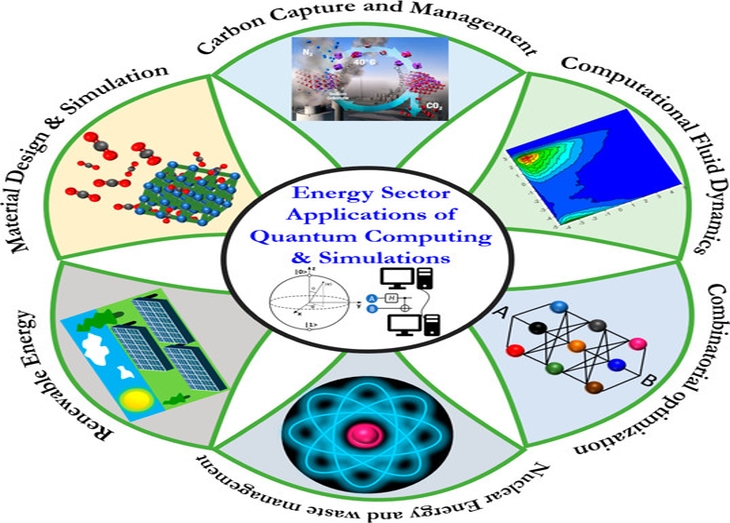Thanks to the quick progress of quantum computing, the computer industry is about to undergo a fundamental transformation. By utilizing the concepts of quantum mechanics, quantum computers hold the potential to address issues that are now beyond the scope of classical computers. In the age of quantum computing, we are at the nexus of scientific inquiry, technological advancement, and extraordinary processing capacity as we go from theory to actual applications. We will go further into the intriguing world of quantum computing in this essay, looking at its fundamental ideas, the present stage of development, prospective uses, difficulties, and the path to realizing its full potential.
Understanding Quantum Computing: A Paradigm Shift in Computing
Our digital age’s foundational devices, traditional computers, process data in bits, which can either represent a 0 or a 1. On the other hand, quantum computing makes use of qubits (quantum bits), which can simultaneously exist in both 0 and 1 states. Quantum computers can carry out some types of calculations at previously unheard-of speeds because of their unique characteristics.

The hardware that a quantum computer uses to carry out its computations is not the only way that it differs from a conventional computer. The way information is processed on the backend is the key distinction between quantum computing and the computers and computing systems we use daily.
Entanglement, a phenomenon where qubits get entangled in a way that the state of one instantly influences the state of another, regardless of the distance between them, is at the core of quantum computing. Due to this characteristic, quantum computers outperform conventional computers at solving complicated tasks.

From Quantum Bits to Quantum Supremacy
In recent years, quantum computing has advanced significantly, moving from theoretical ideas to actual applications. Important dates include:
- Qubit Development: Stable qubits are being developed by quantum hardware platforms. A number of businesses, including IBM, Google, Rigetti, and others, are working hard to develop qubits that are more durable and resistant to decoherence (loss of quantum information).
- Quantum algorithms: Certain computer jobs have shown the potential to be considerably sped up by quantum algorithms, such as Grover’s algorithm for exploring unsorted databases and Shor’s method for factoring big numbers.
- Quantum Cloud Services: It is now possible for researchers and developers to experiment with quantum algorithms and applications without having to create their own quantum hardware thanks to a number of organizations that provide cloud-based access to quantum computing resources.
- Supremacy of the Quantum: 2019 saw Google make the claim that it had attained “quantum supremacy,” proving that its quantum processor, Sycamore, could complete a task quicker than the most potent classical supercomputer.

Applications of Quantum Computing
Numerous fields have the potential to undergo radical change thanks to the enormous processing capacity of quantum computers:
- Cybersecurity: Due to the fact that there are more and more cyberattacks occurring every day, cybersecurity is crucial. Here, quantum computing is nothing short of a godsend. Machine learning and quantum computing can aid in the development of numerous strategies to counter these cybersecurity risks.
- Financial Modeling: Monte Carlo simulations are used by the financial sector to make investment decisions, but these calculations take a lot of computer time. By running intricate calculations on powerful computers, quantum technology can shorten development times and increase the quality of solutions.
- Gaming: Though quantum computing in the gaming industry is still in its infancy, the fact that quantum technology can compute more quickly than the best computers right now has a big impact on how much better the gaming experience would be. This is due to the fundamental differences in how classical and quantum computer algorithms operate.
- Artificial intelligence: Due to the combinatoric processing of massive amounts of data, quantum computing opens up new possibilities for artificial intelligence, allowing for more accurate predictions and judgments. While still constrained by hardware and software limitations, quantum AI is moving beyond the realm of science fiction.
- Computational Chemistry: It is clear that a traditional computer memory would have a hard time processing the enormous number of quantum states. The machine may have tremendous capability to successfully map the molecules if quantum computers can concentrate on the existence of both 1 and 0 simultaneously. In turn, this creates opportunities for medicinal research.
Challenges and Hurdles Ahead
Despite the enormous potential of quantum computing, there are still a number of difficulties:
- Decoherence: Quantum information is brittle and easily affected by its surroundings, which can result in mistakes. To lessen the impact of decoherence, researchers are developing error correction methods.
- Scalability: It is extremely difficult to scale up quantum computers while retaining the integrity of qubits. It is challenging to create dependable, error-free, large-scale quantum processors.
- Algorithm Development: Work is ongoing to create quantum algorithms that can perform better than traditional ones for a variety of issues.
- Education and Access: Quantum resources and knowledge are still not widely available. A workforce that is prepared for quantum technology must be educated and trained.
An exciting journey from the enigmatic world of quantum mechanics to the useful world of processing power is the era of quantum computing. The development of quantum computing has already started to change our perception of computation and its uses, even if we are still in the early stages of grasping its full potential. A future where quantum computing alters industries speeds up scientific advancement and creates new opportunities that were previously thought to be beyond the capabilities of classical computers is being paved by researchers and developers as they successfully negotiate the difficulties. The transition from theory to actual applications may be difficult, but quantum computing has limitless potential and will fundamentally alter the course of human history.





